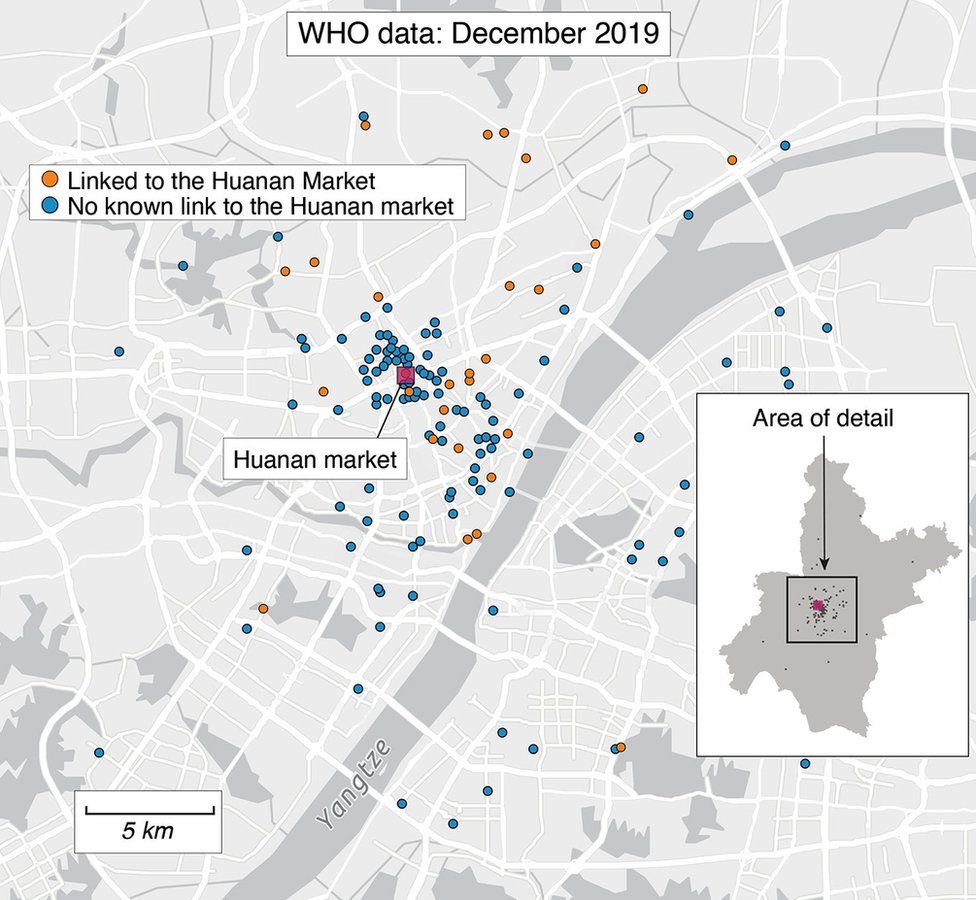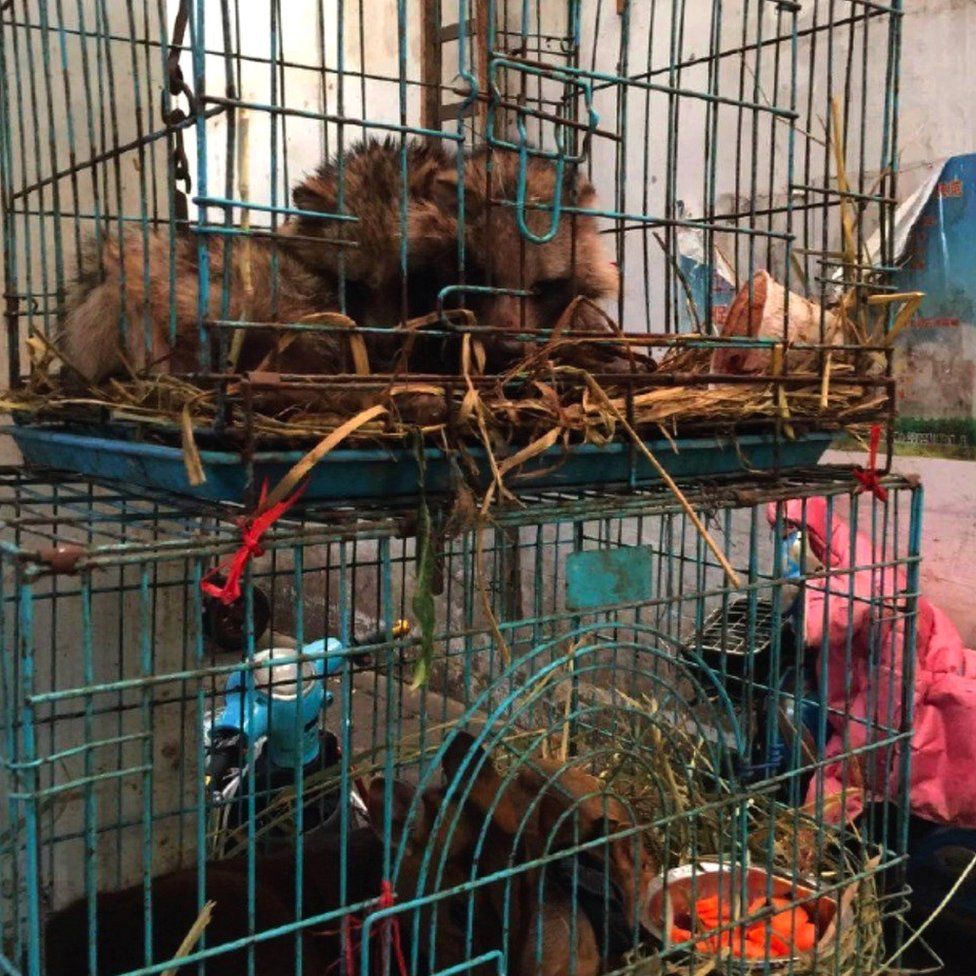Scientists say there is “compelling evidence” that Wuhan’s Huanan seafood and wildlife market was at the centre of the Covid-19 outbreak.
Two peer-reviewed studies published on Tuesday re-examine information from the initial outbreak in the Chinese city.
One of the studies shows that the earliest known cases were clustered around that market.
The other uses genetic information to track the timing of the outbreak.
It suggests there were two variants introduced into humans in November or early December 2019.
Together, the researchers say this evidence paints a picture that Sars-Cov-2 was present in live mammals that were sold at Huanan market in late 2019. They say it was transmitted into people who were working or shopping there in two separate “spillover events”, where a human contracted the virus from an animal.
One of the researchers involved, virologist Prof David Robertson from the University of Glasgow, told BBC News that he hoped the studies would “correct the false record that the virus came from a lab”.
Pandemic epicentre
Two years of scientific effort to understand the virus that causes Covid-19 have provided these researchers with a more informed perspective.
This has enabled them to address a key conundrum in the earliest patient data: That out of hundreds of people who were hospitalised with Covid-19 in Wuhan, only about 50 had a direct, traceable link to the market.
 Image source, Science
Image source, ScienceImage caption, Early cases clustered around the Huanan market (c) Science
“That was really puzzling that most cases could not be linked to the market,” said Prof Robertson. “But knowing what we know about the virus now, it’s exactly what we would expect – because many people only get very mildly ill, so they would be out in the community transmitting the virus to others and the severe cases would be hard to link to each other.”
This Covid-19 case-mapping research found that a large percentage of early patients – with no known connection to the market, meaning they neither worked nor shopped there – did turn out to live near it.
This supports the idea that the market was the epicentre of the epidemic, said Prof Michael Worobey, lead author and biologist from the University of Arizona, with sellers getting infected first and setting off a “chain of infections among community members in the surrounding area”.
“In a city covering more than 3,000 sq miles (7,770 sq km), the area with the highest probability of containing the home of someone who had one of the earliest Covid-19 cases in the world was an area of a few city blocks, with the Huanan market smack dab inside it,” said Prof Worobey.
 Image source, Worobey et al
Image source, Worobey et alThat study also zoomed in on the market itself. The scientists created a map of the samples – swabs of fluid from drains and on market stalls – that tested positive for the virus.
“Most of the positive samples clustered around the south-western side of the market,” explained Prof Robertson. “And that’s the location where we report species like raccoon dogs being sold.
“So we have confirmation of animals we now know are susceptible [to Sars-Cov-2, the virus that causes Covid-19] were sold there in late 2019.”
The lab leak theory
Over the last two years, the search for the origin of the deadly pandemic turned from a scientific investigation into a toxic political row.
- Viewers in the UK can watch this BBC documentary on the hunt for Covid-19’s origins.
One of the subjects of a fierce international blame game – primarily between politicians in the US and China – was a theory that the virus could have been leaked from a Wuhan laboratory, the Wuhan Institute of Virology.
But that hypothesis, said Prof Stuart Neil from Kings College, “can’t explain the data”.
“We’re now as sure as we can be, based on the fragmentary evidence we do have, that this was a spillover event that happened in the market.”
Crowded, live animal markets, many scientists agree, provide an ideal transmission hotspot for new diseases to “spill over” from animals. And in the 18 months up to the beginning of the pandemic, a separate study showed that nearly 50,000 animals – of 38 different species – were sold at markets in Wuhan.
Prof Neil said the pandemic was very likely to have been a consequence of an “unhealthy, cruel and unhygienic practice that Chinese authorities had been warned about”.
The major risk of being distracted by looking for someone in a laboratory to blame for all this, he added, “is that we run the risk of letting this happen again because we’ve focused on the wrong problem.”
Source: BBC
